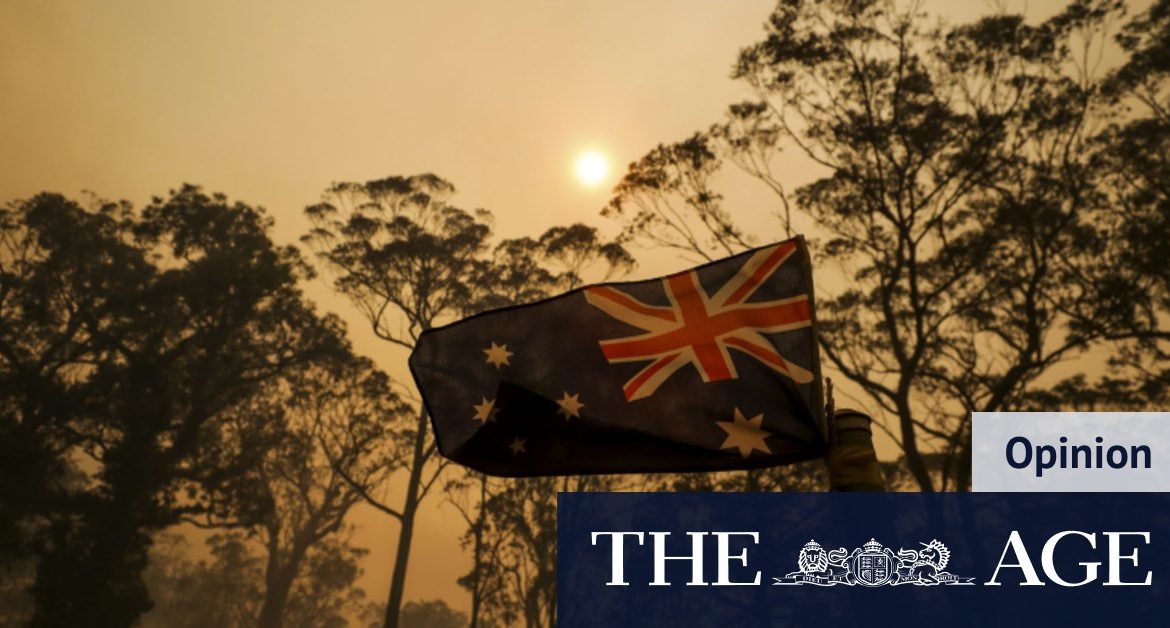We all know 2020 has been a unique and challenging year for many, if not all of us. Australians faced decimating bushfires and flash floods, followed by the onset of the COVID-19 pandemic. International conflict, brutality and abuses of power abounded and so too the coronavirus pandemic ran rampant. The pandemic has become a pervasive and chilling backdrop to man’s inhumanity to man – and a timely reminder of our own vulnerability on a planet teetering on the edge.
The Australian flag flies on a property as smoke from a bushfire approaches.Credit:Alex Ellinghausen
Black Lives Matter protests, freedom protests, civil unrest and an array of elected leaders inciting violence and facing charges of corruption. Warnings from climate scientists that we must act now. How do we as human beings ground ourselves and unite against collective threats, acknowledging our fears and working together rather than divisively?
This year of existential threat has put the world’s nervous systems on high alert, stalked by an invisible enemy for which we had little to no defence. The trauma of COVID-19 spearheaded other global, national and individual threats.
The global scientific community has pulled together to create vaccines which bring us hope that this threat is likely to be nullified. However, the race to test and distribute the vaccine has also been competitive. Even though the virus did not discriminate based on power the response to it, and potentially protection from it, may be steeped in power and influence. Both at home and on a global scale, inherent inequalities play out. From the #MeToo movement, to the entrenched disadvantage of marginalised communities, power ostracises and decimates.







